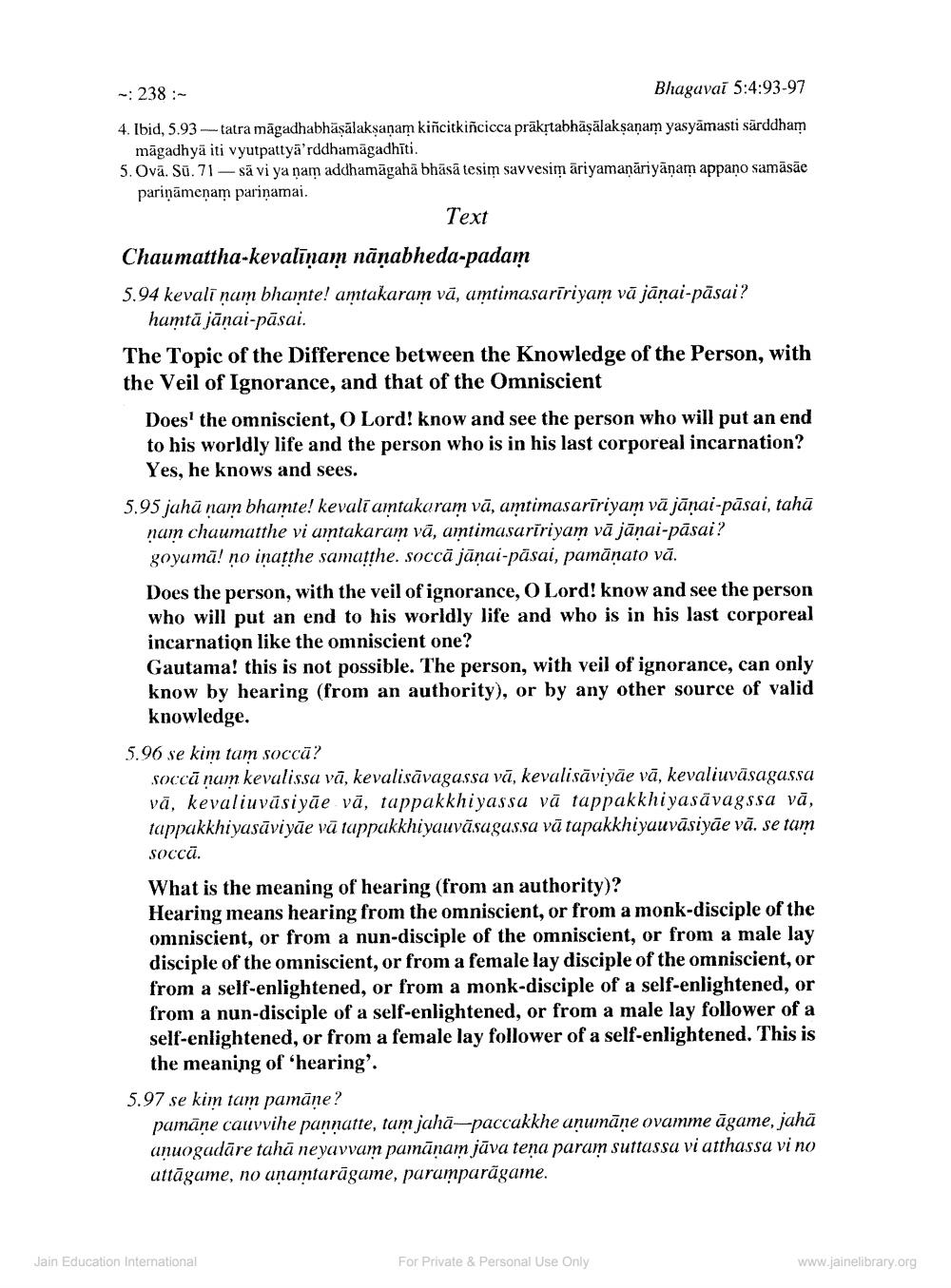________________
~: 238:
Bhagavai 5:4:93-97
4. Ibid, 5.93- tatra māgadhabhāṣālakṣaṇam kiñcitkiñcicca prakṛtabhāṣālakṣaṇam yasyamasti särddham magadhya iti vyutpattyä'rddhamagadhīti.
5. Ovā. Sū. 71-sä vi ya nam addhamagaha bhasa tesim savvesim ariyamaṇariyanam appano samāsāe pariņāmenam parinamai..
Text
Chaumattha-kevalīņam nāṇabheda-padam
5.94 kevali nam bhamte! amtakaram vā, amtimasarīriyam vā jāṇai-päsai? hamtā jānai-päsai.
The Topic of the Difference between the Knowledge of the Person, with the Veil of Ignorance, and that of the Omniscient
Does' the omniscient, O Lord! know and see the person who will put an end to his worldly life and the person who is in his last corporeal incarnation? Yes, he knows and sees.
5.95 jahanam bhamte! kevali amtakaram va, amtimasaririyam vā jāṇai-pāsai, tahā nam chaumatthe vi amtakaram va, amtimasaririyam vā jāṇai-pāsai? goyama! no inatthe samatthe. soccä jänai-päsai, pamäṇato vä
Does the person, with the veil of ignorance, O Lord! know and see the person who will put an end to his worldly life and who is in his last corporeal incarnation like the omniscient one?
Gautama! this is not possible. The person, with veil of ignorance, can only know by hearing (from an authority), or by any other source of valid knowledge.
5.96 se kim tam soccā?
socca nam kevalissa vä, kevalisävagassa vä, kevalisäviyäe vä, kevaliuvāsagassa vä, kevaliuväsiyäe vä, tappakkhiyassa va tappakkhiyasävagssa vä, tappakkhiyasaviyäe vä tappakkhiyauvāsagassa va tapakkhiyauvasiyae vā. se tam
soccā.
What is the meaning of hearing (from an authority)?
Hearing means hearing from the omniscient, or from a monk-disciple of the omniscient, or from a nun-disciple of the omniscient, or from a male lay disciple of the omniscient, or from a female lay disciple of the omniscient, or from a self-enlightened, or from a monk-disciple of a self-enlightened, or from a nun-disciple of a self-enlightened, or from a male lay follower of a self-enlightened, or from a female lay follower of a self-enlightened. This is the meaning of 'hearing'.
5.97 se kim tam pamane?
pamane cauvvile pannatte, tam jahä-paccakkhe anumane ovamme ägame, jahä anuogadare taha neyavvam pamāṇam jāva teṇa param suttassa vi atthassa vi no attagame, no anamtarägame, paramparägame.
Jain Education International
For Private & Personal Use Only
www.jainelibrary.org




